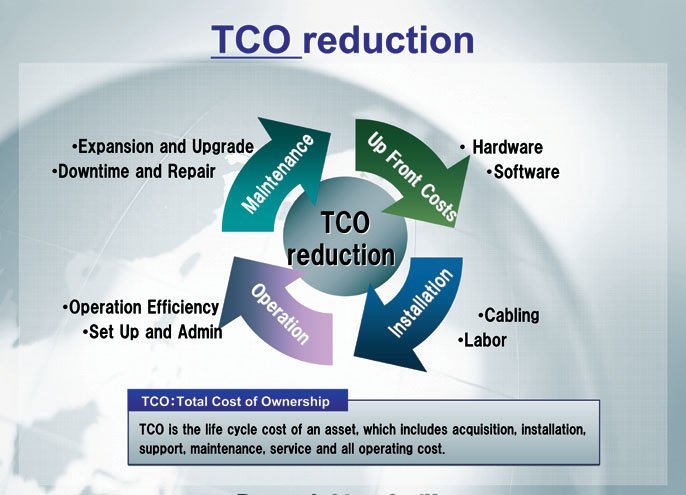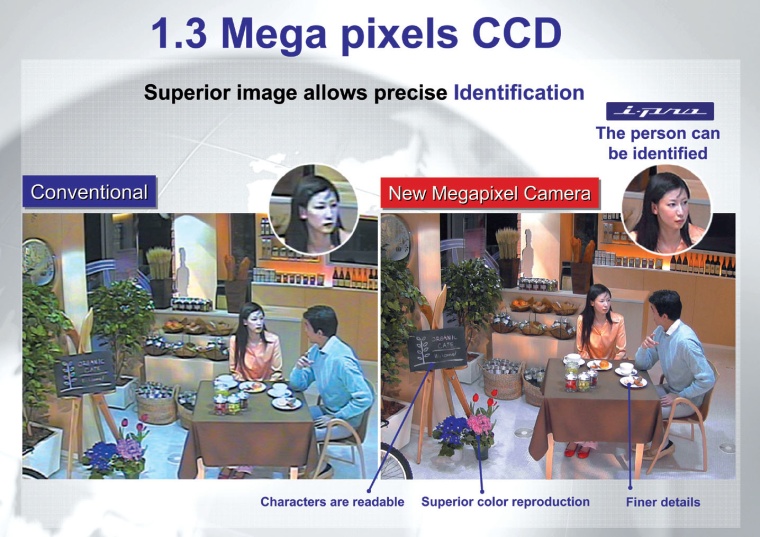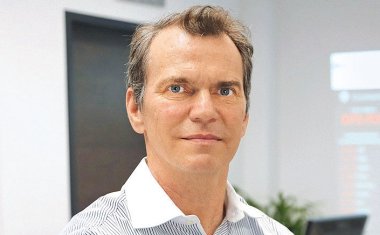Panasonic: next generation of IP products
Panasonic: next generation of IP products. At Security Show in Tokyo and an international press conference held in March, Panasonic Security Systems presented their second generati...


Panasonic: next generation of IP products. At Security Show in Tokyo and an international press conference held in March, Panasonic Security Systems presented their second generation of IP products for the security market. The introduction of new i-Pro line-ups is the next step on their way to become number 1 in the network surveillance market.
Rapid Growth with IP Products
While the market for analogue products within the industry stays at the same level, the need for IP based security products is pushing Panasonic’s security sales. After a new sales record in 2007, Panasonic Security Systems expects again double digit growth rates in their financial year 2008. The EMEA market has specifically helped to achieve the high overall growth rates with strong sales.
In the press conference Panasonic’s executives made clear that for the future the product development will have a strong focus on IP products. At Security Show they displayed their reinforced i-Pro Network Surveillance System with four new products. Including two new megapixel cameras, a high performance network recorder and a multi channel video decoder, these latest additions show the company‘s commitment to the network surveillance market. The two new cameras are equipped with a 1.3 megapixel CCD that is four times greater than the conventional cameras while maintaining the same price range.
The new network cameras have a newly developed proprietary DSP and deliver images that are so detailed, that an operator can easily identify subjects and capture critical moments. Relying on megapixel technology, Panasonic believes in lower ‘Total Cost of Ownership’ (TOC) for the new IP products and has further improved technical features of the cameras and storage products:
- A better image quality through the megapixel CCD to ensure that surveillance really means identification.
- ‘Progressive Scan’ against motion blur and tearing problems: The new network cameras use a progressive scan CCD with double the number of vertical transfer cells compared to interline transfer CCD so that it can transfer electrons of all pixels in 1/30 seconds, resulting in full vertical resolution image with less motion blur and without tearing problems.
- ‘Adaptive Black Stretch’ as a function that improves dark area visibility.
- `Focus Assist’: A megapixel camera requires accurate focus adjustment to achieve its native performance. This function uses an on-screen display to indicate the best focus position making accurate focus adjustment simpler.
As high quality cameras alone are not the solution for demanding surveillance applications, the i-Pro Network Surveillance System has been developed as a high quality total system solution including cameras, video encoders with video analytics, recorders, monitoring software and management software.
Network Surveillance System Delivers Lower TCO
Demands toward network surveillance system have grown as the idea of TCO has become widely recognised in the surveillance industry. TCO is the life cycle cost of an asset, including acquisition, installation, support, maintenance, service and all operating cost. Network surveillance systems dramatically lower post-purchase cost such as installation, operation, maintenance and service costs, sharply lowering Overall TCO.
According to Panasonic, their high-end users recognised the efficiency of network surveillance system first because it was easier to notice the effect with their large scale systems. Recently, however, small to middle scale system users have also started recognizing the positive effects and becoming more willing to adopt and invest into network surveillance systems.
Lowering TCO, one of the major benefits of using a network surveillance system, is visible throughout the whole process of introducing a network surveillance system. Installation can be very simple just by connecting cameras, recorders and client PCs to Ethernet switches via Ethernet cables. As for cameras, power can be supplied by Power over Ethernet (PoE) feature. This eliminates a number of coaxial video cables between camera site and monitoring site, power supplies and complex installation work, resulting in a lower material and labour costs.
When operating the system, remote and multiple locations can clearly be monitored and managed centrally, reducing the need for security guards, lowering the cost of false alarms and easing the burden on operators.
Future Developments
Building on a successful range of i-Pro products and connecting them, Panasonic plans to introduce an IP Matrix Management Software in the near future that will seamlessly control the network surveillance system. The company promises that the software will provide functionality only seen before on analogue matrix systems such as camera-monitor switching, camera control, sequence display, alarm handling and flexible user management.
Further developments on the biometrics sector are also in Panasonic’s research and development pipeline. According to Masato Sato, Director of Panasonic Security Systems, the company’s goals are to grow the industry as a whole by accelerating the development of IP surveillance. He and his team are working also accelerating the development of “killer concepts“, which means to continuously develop unique technologies.
A view on the new i-Pro line-up and their market-proven engineering and manufacturing expertise should enable Panasonic to seriously approach their target to be number 1 in network surveillance market.
Heiko Baumgartner
Contact:
Panasonic UK Ltd,
Bracknell, United Kingdom
Tel.: +44 1344 853 154
Fax: +44 1344 853 221
claire.millington@eu.panasonic.com
www.pss.panasonic.eu
www.s2sys.com
most read

Is Your Venue Ready for Martyn’s Law?
Martyn’s Law demands stronger security by 2027. Is your venue prepared to protect and respond?

When the Internet stumbles: Why DNS is important
When DNS fails, the internet stumbles-AWS outage proves resilience and redundancy are vital for digital trust

Assa Abloy's battery-powered Aperio KL100 secures lockers
Boost workplace security and operational flexibility by securing more than just doors.

Safety and Security in an Emergency: How companies take responsibility with strategic personal protection and amok prevention
Personal protection & amok prevention: strategic concepts, training & responsibility for corporate safety and security

Integrated and Futureproof: Traka’s Next Chapter
Interview with Stefni Oliver on Traka’s Vision for the Future







